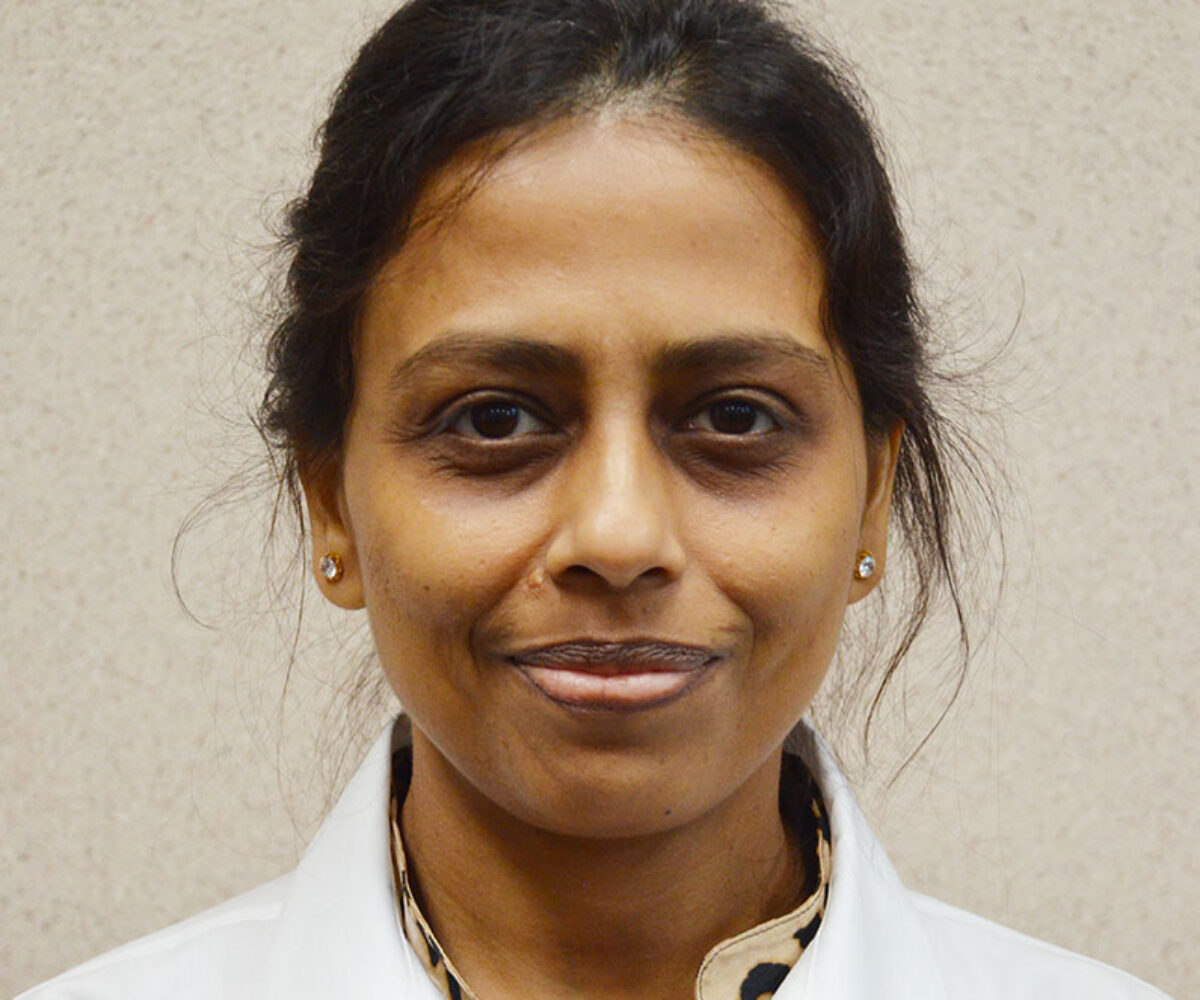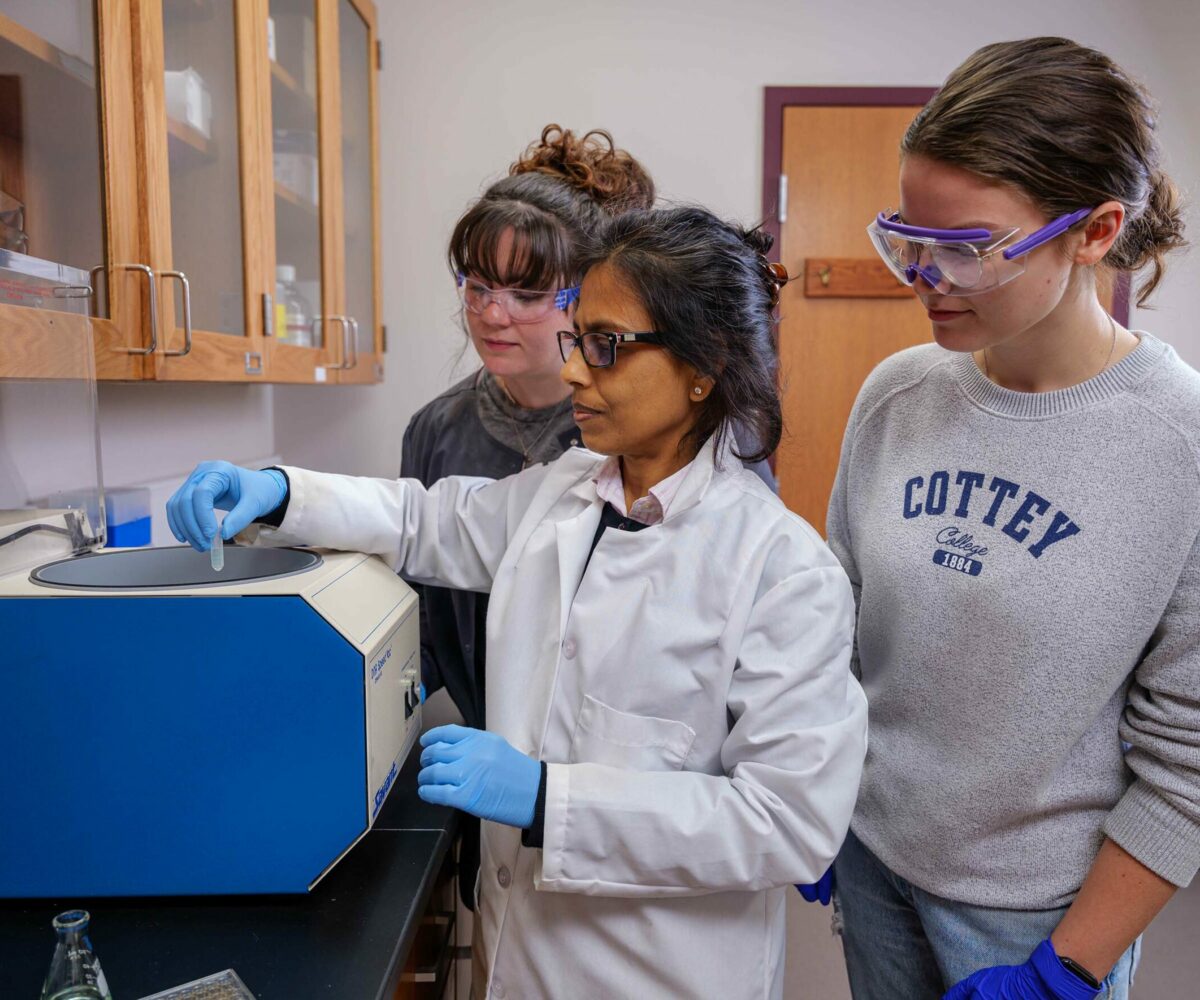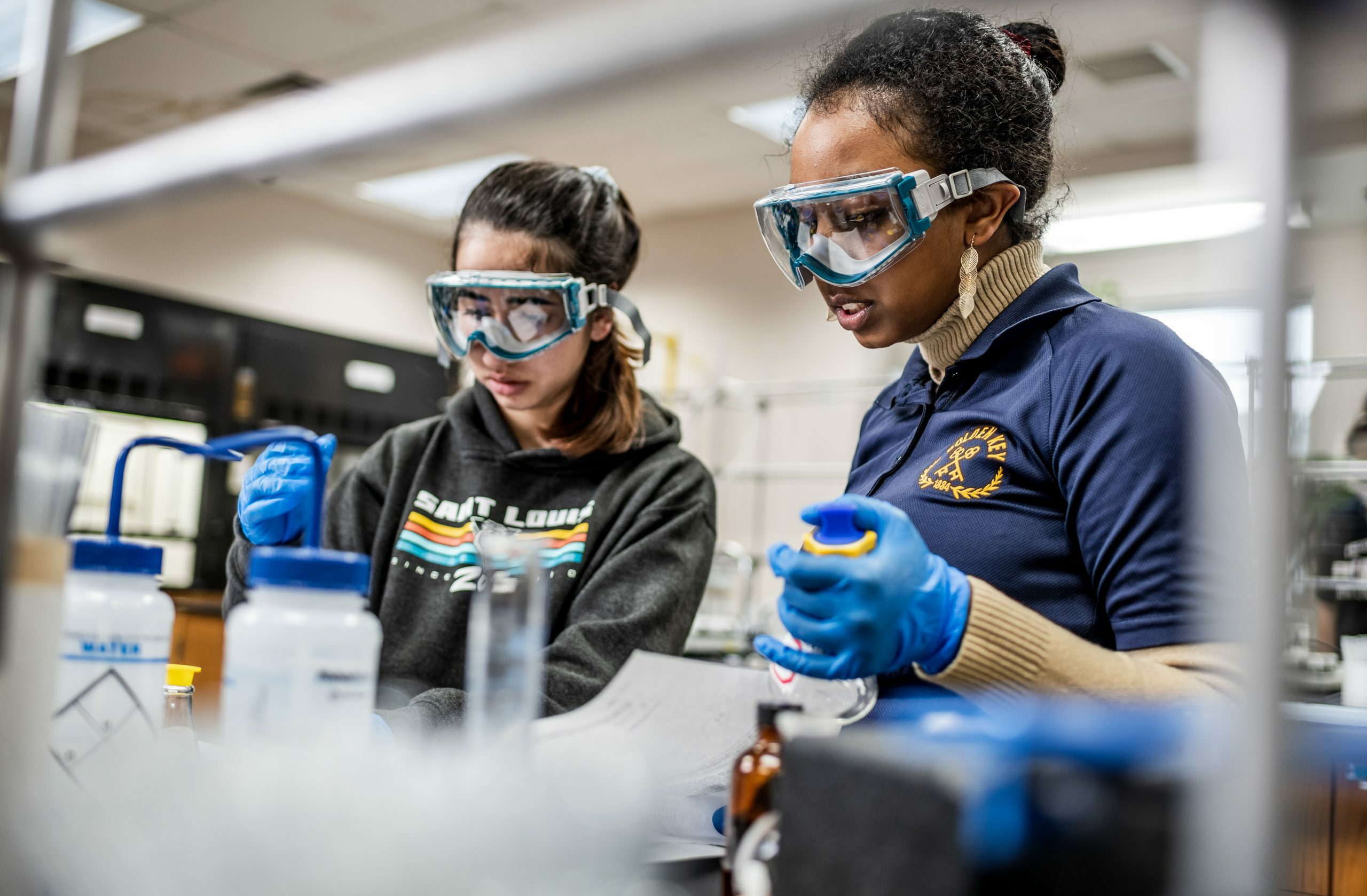
Associate Professor of Biology and Chemistry
Cottey offers a BS in health and biomedical sciences.
The health and biomedical sciences program at Cottey College is designed to serve students who intend to enter a health science career or seek an advanced degree in biomedical sciences.
In our diverse and supportive environment, students develop their potential through engagement in a broad variety of learning opportunities, including academic coursework in the sciences and mathematics; participation in research, internships, and service-learning; attendance at conferences; completion of seminar courses and a senior capstone project; and an optional international experience.
Through completion of our program, you will
Dr. Manjira Kumar also has a research program that allows a few students each year to conduct high-level laboratory research.
The project is ongoing and focuses on over-the-counter (OTC) anti-inflammatory drugs like Ibuprofen and Acetaminophen and their links to algal bloom, infertility in men, and other harmful effects from NSAIDs polluting waterways.
Presents an introduction to professional skills, including protection of human research participants; institutional review board protocols; bioethics of laboratory research; the creation of CVs, resumes, and cover letters; searching for jobs and/or graduate programs; creation of job/program applications; and interviewing.
This course presents basic principles of current medical diagnostic methods and the scientific principles behind those methods. It will include topics such as protemic mass spectroscopy, UV/Vis spectroscopy, IR spectroscopy, and FRET, and the applications of these spectroscopic techniques in the diagnosis of disease.
This course provides insight into how molecular studies can be employed to expand medical research and aid in the development of novel treatments and therapeutics. The course will cover a number of areas selected by the participants. Possible topics include neurodegenerative disorders, prion diseases, cancer, and diabetes.
The health sciences and biomedical sciences are not located in any single scientific discipline but are instead found at the intersections of biology, chemistry, physics, and mathematics. The HBS program was created to reflect the reality that our students do not need an intense focus on any one of these areas, but instead they need a broader focus that includes all of them.
Due to our small class sizes, students in the health and biomedical sciences program are able to work closely with faculty in the biology, chemistry, physics, mathematics and other departments as they progress through their coursework, participate in undergraduate research, and learn what it means to be practitioners of science.
We understand the importance of hands-on laboratory experience. Our laboratory spaces are well-stocked, so that all students routinely work with lab samples and research-quality scientific equipment and instrumentation. We understand the ways in which students learn from each other, and our lab spaces are designed to allow students to communicate and share with one another. Each year, a small number of students gain additional experience by working with our laboratory manager to help prepare the chemicals, biological samples, and equipment needed for each week’s lab sessions; perform standard maintenance of equipment and instrumentation; and generally help keep the laboratories in good working order.
As faculty, we love being with our students, and relish the opportunities to spend time with them as they move toward their future careers. We develop and participate in research and service-learning projects so students may gain knowledge and develop independence. We make it possible for students to attend professional conferences, which helps them gain an understanding of how they are part of the greater scientific and healthcare community.
Our series of seminar courses, I – III, are designed to help students gain the professional skills that will be needed in their future work:
Associate Professor of Biology and Chemistry

